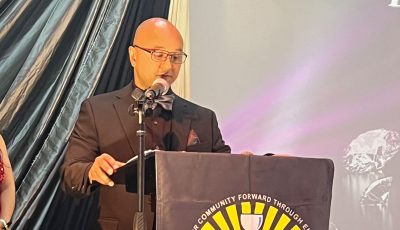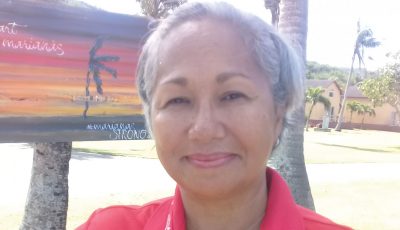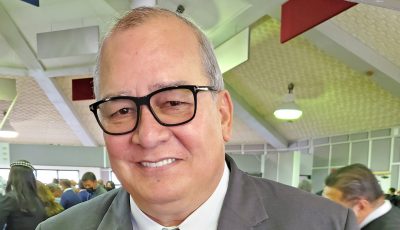Kilili creates insular area Medicaid working group
Delegate Gregorio Kilili C. Sablan (Ind-MP) has taken the lead to form a congressional working group to address the end of supplemental Medicaid funding for the insular areas in September 2019.
The supplemental funding—$109 million for the Marianas—was included in the 2010 Healthcare and Education Reconciliation Act, P.L. 111-152, or Obamacare. The money kept the Commonwealth Health Center open after the Fitial administration cut the hospital out of the government budget and is now almost entirely spent.
“As I did to extend the Commonwealth-Only Transitional Worker program for 10 years in the Northern Mariana Islands U.S. Workforce Act, I am forming a staff working group to come up with proposals to deal with the ‘Medicaid cliff’ that the insular areas all face,” Sablan said. “Replacing that funding for our hospital—about $15 million per year—is undoubtedly my top priority in the next Congress.
“If re-elected, I will be the only insular area member of Congress who was in office when the supplemental Medicaid funding was included in Obamacare. In fact, I was in the White House meeting with the President that changed his mind and got us the money.
“So, I know the history, what arguments were persuasive then, what arguments failed. That institutional knowledge should be helpful in solving this looming crisis,” Sablan said.
Like CW working group—but harder
In some ways, Sablan’s CW working group was simpler than the Medicaid working group will be, because only the Marianas was involved. With Medicaid, all five insular areas are affected. All face the end of supplemental Medicaid funding, but each of the jurisdictions has different constraints and capabilities in delivering healthcare. That makes a resolution more complicated than the CW extension.
“The working group has already met with Senate and House committees with jurisdiction over Medicaid,” Sablan said. “So, the issue is on the radar for the 116th U.S. Congress beginning in January.
“I have also included legislative language in the Health Equity and Accountability Act, H.R. 5492, that would solve the ‘cliff’ problem by treating all the insular areas like states for purposes of Medicaid. This bill has the support of 67 members so far and is likely to be a starting point for healthcare legislation in a Democratic-majority House next year.”
In addition to the supplemental Medicaid funds, the Marianas also receives a base grant each year. Obamacare increased that base grant, too, which for fiscal year 2019 is $6.7 million. Another positive change: Obamacare reduced the local match required for Medicaid by 10 percent.
‘Medicaid funding affects all’
Sablan said the Marianas congressional office has also discussed the Medicaid cliff problem with Trump administration officials. “The problem is that the Trump administration wants to turn Medicaid nationally into a block grant with a fixed amount of funding for each state, which is what the insular areas have. While the insular areas want to get out of block grants and be treated like states with more or less unlimited funding to meet need.”
Medicaid is the nation’s largest healthcare program, covering some 74 million people. In the Marianas about 15,000 are eligible for coverage from Medicaid.
“It is important to remember that Medicaid is not just for the poor,” Sablan said. “Medicaid accounts for 28 percent of our hospital’s revenues. Without Medicaid, CEO Esther Muna has told me, the hospital would close.
“And if the hospital closes, not just the patients on Medicaid are hurt. We all are in trouble.” (PR)



























